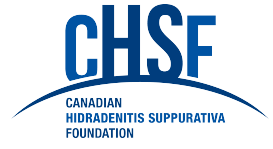Table of Contents
Understanding HS Surgical and Non-surgical Treatments

Exploring HS Treatment Options
Living with Hidradenitis Suppurativa (HS) can be a journey full of ups and downs. At the Hidradenitis Suppurativa Foundation, we’re here to offer guidance on the HS Surgical and Non-surgical Treatments available, helping you find relief and improve your quality of life. Navigating treatment options is not a one-size-fits-all approach, as each individual’s experience with HS varies greatly. Knowing the range of possible interventions can empower you to make informed choices alongside your healthcare provider.
Non-surgical interventions often serve as the first line of defense. They span from lifestyle changes like diet adjustments and stress management to medical treatments including antibiotics, hormonal therapies, and biologics. These options aim to manage symptoms and prevent flare-ups but may not always be sufficient for severe cases.
When non-surgical methods prove insufficient, surgical options may be discussed. These can range from minor in-office procedures to more extensive surgeries, aimed at removing affected tissues and reducing the recurrence of painful nodules and abscesses. The choice of procedure often depends on the stage and severity of HS.
Surgical Interventions for HS
For some of us dealing with HS, surgery can be a turning point in managing this condition. Incision and drainage is a common procedure that provides immediate pain relief, although it may not offer a lasting solution. Advanced surgical treatments include deroofing, wide excision, and the innovative use of lasers–each with the potential to significantly reduce the recurrence of HS lesions.
Every surgical procedure has its considerations, from recovery time to potential complications. It’s important to have an open conversation with your medical team about what to expect and how to best prepare for post-operative care. HS Surgical and Non-surgical Treatments are tailored to your unique needs, offering hope for better symptom management and an improved standard of living.
Non-surgical Management of HS
It’s not just surgical options on the table; non-surgical treatments play a critical role in managing Hidradenitis Suppurativa. From antibiotics to biologics, these treatments can help control inflammation, prevent infections, and manage pain.
Adopting a holistic approach, we also emphasize the importance of lifestyle modifications. Stress reduction techniques and smoking cessation are just a couple of the changes that can positively impact HS symptoms. Innovative approaches such as dietary changes and natural remedies also show promise in reducing flare-ups and enhancing overall well-being.
The power of community support cannot be overstated. Sharing experiences and tips with others who understand the struggle with HS can be incredibly therapeutic and offer a wealth of practical advice.

Personal Insights on HS Treatments
As someone who has navigated the complexities of HS for years, I can share that the journey to finding the right treatment is deeply personal. What works for one individual might not work for another, and it often requires patience and persistence. Participating in support groups has allowed me to learn from others’ experiences with HS Surgical and Non-surgical Treatments, offering new perspectives and coping mechanisms that I hadn’t considered before.
- Engagement in community forums to share and receive advice
- Personal experimentation with various non-surgical methods
- Discussion of surgical options with health professionals
It’s through this shared journey that we often find the strength and hope necessary to continue our fight against HS. Embracing both traditional and innovative treatments, we can pave a path toward a more comfortable life.
The Hidradenitis Suppurativa Foundation believes in the power of shared knowledge and the collective pursuit of new and effective HS Surgical and Non-surgical Treatments. Together, we’re building a future where HS is not an obstacle, but a condition that we can manage successfully.
HS Education for Healthcare Providers
Understanding Hidradenitis Suppurativa (HS)
For healthcare providers, comprehending the complexities of HS is crucial to offering comprehensive care. HS Education for Healthcare Providers starts with the basics of the disease, its symptoms, and the impact on patients’ quality of life. Gaining this foundational knowledge equips providers to identify HS early and manage it effectively.
As part of the Hidradenitis Suppurativa Foundation, we emphasize the human side of HS. Through shared stories and experiences, we communicate the physical and emotional toll of this condition. This personal perspective is essential for fostering empathy and understanding in the provider-patient relationship.
HS Education for Healthcare Providers also includes staying abreast of the latest research and therapeutic approaches. Our platform disseminates groundbreaking studies and innovative treatments, aiding providers in expanding their toolbox for combatting HS.
Building Connections in HS Management
The Hidradenitis Suppurativa Foundation acknowledges the importance of collaborative care in HS management. Interdisciplinary cooperation among dermatologists, surgeons, and wound care specialists is vital. HS Education for Healthcare Providers must encompass the roles of different specialties and the ways in which they can work together to optimize patient outcomes.
Encouraging healthcare providers to engage in ongoing education, we host webinars and workshops that bring forth real-world scenarios and discussions on best practices. Such interactive sessions not only enrich providers’ knowledge but also bridge gaps between theory and practice.
Providers who are well-versed in HS through dedicated HS Education for Healthcare Providers become invaluable assets to their patients. They are better prepared to advocate for necessary treatments and support services, navigate insurance challenges, and guide their patients through the complexities of HS.
Our emphasis on the education of healthcare professionals strengthens the standard of care for HS patients. By enhancing provider expertise, we empower them to make a substantial difference in the lives of those struggling with this condition.
Advancing HS Care Through Education
Personal Growth for Providers
HS Education for Healthcare Providers should prioritize not only the acquisition of knowledge but also the personal growth of the healthcare providers themselves. By understanding HS from the patient’s viewpoint, providers cultivate a deeper level of compassion and commitment to their care.
Our foundation recognizes that education is a two-way street. While providers learn about HS, they also teach us about the challenges they face in treating it. This exchange is integral to tailoring educational content to meet their needs effectively.
Innovative Educational Approaches
In pursuit of excellence, HS Education for Healthcare Providers must be innovative and engaging. We experiment with various educational tools, from interactive case studies to augmented reality simulations, to provide an immersive learning experience.
By integrating technology into our educational strategy, we aim to make learning about HS not just informative but also memorable. The use of multimedia presentations and online forums for discussion encourages active participation and fosters a collaborative learning environment.
- In-depth case study analyses
- Interactive patient simulations
- Peer-to-peer learning sessions
Ultimately, our goal is to inspire healthcare providers to become lifelong learners and advocates for HS patients, continually seeking knowledge and understanding that can translate into improved patient care.
Understanding HS Research and Clinical Trials
The Significance of HS Research and Clinical Trials
As a hub for those impacted by Hidradenitis Suppurativa (HS), our goal is to shed light on HS Research and Clinical Trials. These studies are the backbone of medical advancements, offering hope for new treatments and possibly a cure. The participation of volunteers is crucial, as it directly contributes to the understanding of HS and the development of effective therapies. With every trial conducted, we move closer to unraveling the complexities of this condition.
Engaging in HS Research and Clinical Trials provides patients with access to leading healthcare professionals and cutting-edge treatments. It’s an opportunity to actively partake in research that could one day change the course of HS treatment. We encourage our community members to consider the prospects such trials offer–not just for individual health improvements but for the collective benefit of the HS community.
In my experience, I have witnessed the profound impact that patient involvement in trials can have. It’s more than just individual gains; it’s about contributing to a larger purpose. The data collected extends far beyond immediate use, laying the groundwork for future healthcare breakthroughs.
Navigating the World of Clinical Trials
Finding the right HS Research and Clinical Trials can be a daunting task. That’s where we step in to assist. We help demystify the process, guiding patients through the myriad of options and offering support at every stage. From understanding the purpose and potential benefits of a study to deciphering the details of informed consent forms, we’re here to support our community members.
Remember that not all clinical trials offer compensation, and it’s crucial to recognize that participation extends beyond financial incentives. The true value lies in contributing to the advancement of science and potentially improving the life quality of those living with HS.
Our personal insights and anecdotal evidence suggest that every trial is a learning step–a chance to better manage HS and foster a deeper connection with the HS community. Through trials, patients often gain a sense of agency and insight into their condition, which can be empowering.
The Broader Impact of HS Clinical Trials
HS Research and Clinical Trials have a reach that extends beyond the confines of a research facility. They inform policy, guide healthcare practices, and can influence public perception. It’s a matter of laying down a path that will lead to better care and a higher quality of life for individuals with HS. This is not just our mission; it’s our passion.
Participation in such studies also serves as an act of solidarity. By volunteering for HS Research and Clinical Trials, patients join a collective effort to push the boundaries of what is known about HS. This symbiotic relationship between research and real-life impact is what drives us to continue our work in patient advocacy and education.
Each trial completed is a beacon of progress. And for those who choose to participate, it’s a personal chapter in their HS journey–one filled with the potential of new understanding and the hope for future generations.
- Navigating informed consent
- Understanding compensation and its role in trials
- Finding trials that fit individual needs and circumstances
At the heart of our efforts, we remain committed to ensuring that these trials are not just a scholarly endeavor but a practical, accessible resource for those grappling with HS every day.

What is the non surgical treatment for HS?
Non-surgical treatments for Hidradenitis Suppurativa (HS) are quite diverse and aim to control symptoms, prevent new flare-ups, and manage pain. At the Hidradenitis Suppurativa Foundation, we emphasize a comprehensive approach that includes antibiotics to combat infection, hormonal therapies to address underlying hormonal influences, and biologics, particularly TNF-alpha inhibitors, which have been groundbreaking in reducing inflammation associated with HS. Moreover, lifestyle changes such as adopting an anti-inflammatory diet and engaging in stress management techniques go a long way in managing HS symptoms. For instance, a member of our community found remarkable improvement in their symptoms after incorporating turmeric, a natural anti-inflammatory, into their diet. It’s these kinds of tailor-made strategies that can lead to significant improvement in quality of life for many individuals suffering from HS.
What is the best surgery for hidradenitis suppurativa?
The “best” surgery for HS largely depends on the severity and location of the lesions, as well as the patient’s overall health and personal circumstances. In our experiences at the Hidradenitis Suppurativa Foundation, wide excision–which involves the removal of all affected tissue–has shown promising results in reducing the recurrence of HS in the long term. However, it’s critical to discuss with your healthcare team whether this option is appropriate for you, as it involves a longer recovery time and the potential for significant scarring. For some patients, less invasive options, such as deroofing or the use of lasers, may be more suitable and equally effective. These choices offer a balance between effectiveness and recovery time, allowing individuals to resume their daily activities sooner.
When is surgery needed for HS?
Surgery is usually considered for HS when non-surgical treatments fail to provide relief or when chronic lesions lead to the formation of sinus tracts and significant scarring. It’s often the case for those in the moderate to severe stages of HS, where the quality of life is heavily impacted. For instance, one of our community members decided to pursue surgical treatment after years of recurrent, severe flare-ups that did not respond to medications. The physical and emotional relief they experienced post-surgery underscored the critical turning point surgery can be for certain individuals. A candid discussion with your healthcare provider about the risks, benefits, and expected outcomes is key to making an informed decision regarding HS surgery.
What is the latest treatment for hidradenitis suppurativa?
The treatment landscape for HS is constantly evolving, and new therapies are emerging as our understanding of the condition deepens. One of the latest treatments gaining attention is the use of biologics, specifically adalimumab, which is the first FDA-approved medication for HS and targets the inflammation process at a molecular level. Additionally, we at the Foundation are excited about the ongoing research into JAK inhibitors, which show potential in reducing HS inflammation. It’s through active involvement in clinical trials and research that we’ve seen firsthand how these innovative treatments can change lives. Always consult with your healthcare provider to determine if you might be a candidate for these or other emerging therapies.
How is the Hidradenitis Suppurativa Foundation furthering HS education among healthcare providers?
Education is a cornerstone of the Hidradenitis Suppurativa Foundation’s mission. We believe that informed healthcare providers can make a tremendous difference in the lives of HS patients. To this end, we offer comprehensive, up-to-date resources and training opportunities, such as webinars and workshops, focused on both the clinical and empathetic understanding of HS. By sharing real-world experiences and patient stories, we provide a nuanced view of the condition that transcends textbook knowledge. For example, a recent webinar helped clinicians see the emotional burden of HS through the eyes of their patients, fostering a deeper empathy and commitment to patient-centered care.
What role do patients play in HS research and clinical trials?
Patients are absolutely vital to the success of HS research and clinical trials, as their participation helps uncover the effectiveness and safety of potential new treatments. By volunteering in a clinical study, individuals not only have access to new therapies but also contribute to the advancement of HS understanding and treatment on a broader scale. A past clinical trial participant from our community shared how empowering it was to be part of a process that could potentially pave the way for a cure. Keep in mind that taking part in clinical trials is also a personal choice and should be considered carefully with guidance from medical professionals.
HS Resources
-
Centers for Disease Control and Prevention (CDC) – Provides comprehensive information on various health conditions, including Hidradenitis Suppurativa:
Visit CDC -
National Organization for Rare Disorders (NORD) – Offers resources and information for patients and caregivers about rare diseases, including HS:
Visit NORD -
MedlinePlus – A service of the U.S. National Library of Medicine, providing reliable health information on Hidradenitis Suppurativa:
Visit MedlinePlus -
American Academy of Dermatology (AAD) – Offers a variety of patient education materials on skin conditions including HS:
Visit AAD -
National Institutes of Health (NIH) – Presents clinical trials and latest research on Hidradenitis Suppurativa:
Visit NIH Clinical Trials -
National Institute of Arthritis and Musculoskeletal and Skin Diseases (NIAMS) – Provides information on diseases affecting the body’s connective tissue, including HS:
Visit NIAMS



